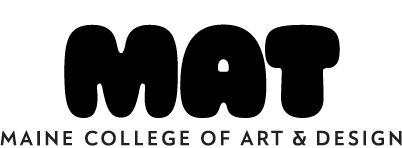Collecting Work Samples
As you move through the MAT program, be sure to collect samples of your own work and those of the students you teach. This collection becomes part of the building body of evidence that demonstrates your professional growth and your ability to reach Maine Teacher Candidate Proficiencies and Program Outcomes. Below is a required and suggested list of evidence to collect.
Required
- Teaching Philosophy
- Resume
- Lesson Plans
- Unit Plans
- Video Recording of Direct Instruction
- Demo
- Photo Documentation
- Student Projects and Assessments
- Research
- Written Reflections
- Summative Course Assignments
Suggested
- Formal Mentor Evaluations
- Letters of Recommendation
- Digital Images of Bulletin Boards, Learning Centers, and other Aspects of Classroom
- Course Resources and Research
- OTHER
Never collect student work or photographs without permission. Most schools gain blanket parental permission to reproduce work samples and photographic likeness within certain constraints. Find out what their permissions cover. Appendix I shows a generic form that you may use if needed.
Your work samples form the basis of three very important conferences, one at each transition point of the program. After the summer session, you will hold informal, individual conferences with faculty to identify your learning needs and interests as you begin the fall coursework. During exam week of the fall term, you will discuss your readiness to enter student teaching with the Director of Art Ed Outreach. The assessment of your readiness will depend upon several factors . While you are student teaching, you are expected to assemble the Student Teaching e-Portfolio that demonstrates attainment of the Maine Teacher Candidate Proficiencies. Finally, at the end of the program, you will select the most important pieces of evidence from your entire collection to build a web-based professional portfolio.
